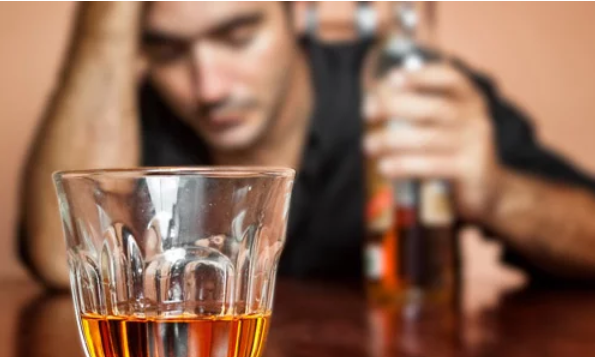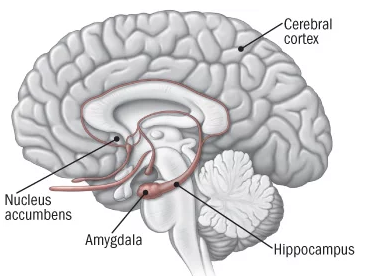Understanding Addiction
How Addiction Hijacks the Brain
Compulsion includes longing for something seriously, loss of control over its utilization, and proceeding with contribution with it notwithstanding unfavorable results. Enslavement changes the cerebrum, first by subverting the way it registers joy and after that by tainting other ordinary drives, for example, learning and inspiration. In spite of the fact that breaking an enslavement is intense, it should be possible.
What causes habit?
"Addiction" is gotten from a Latin expression for "subjugated by" or "bound to." Anyone who has attempted to beat a dependence—or has endeavored to help another person to do as such—comprehends why.
Compulsion applies a long and capable impact on the mind that shows in three unmistakable courses: wanting for the question of habit, loss of control over its utilization, and proceeding with contribution with it in spite of unfriendly outcomes.
For a long time, specialists trusted that exclusive liquor and capable medications could cause enslavement. Neuroimaging innovations and later research, in any case, have demonstrated that specific pleasurable exercises, for example, betting, shopping, and sex, can likewise co-select the cerebrum.
In spite of the fact that a standard U.S. analytic manual (the Diagnostic and Statistical Manual of Mental Disorders, Fourth Edition or DSM-IV) portrays various addictions, each attached to a particular substance or action, accord is developing that these may speak to numerous statements of a typical hidden mind process.
New bits of knowledge into a typical issue
No one begins meaning to build up a habit, however many individuals get got in its catch. Consider the most recent government measurements:
About 23 million Americans—very nearly one out of 10—are dependent on liquor or different medications.
More than 66% of individuals with enslavement manhandle liquor.
The main three medications causing enslavement are weed, opioid (opiate) torment relievers, and cocaine.
In the 1930s, when specialists initially started to research what caused addictive conduct, they trusted that individuals who created addictions were some way or another ethically imperfect or ailing in self discipline. Beating dependence, they thought, included rebuffing scalawags or, then again, reassuring them to gather the will to get out from under a propensity.
The logical accord has changed from that point forward. Today we perceive dependence as an incessant infection that progressions both mind structure and capacity. Similarly as cardiovascular sickness harms the heart and diabetes debilitates the pancreas, fixation seizes the mind. This occurs as the cerebrum experiences a progression of changes, starting with acknowledgment of joy and completion with a drive toward urgent conduct.
Joy standard
The cerebrum enlists all joys similarly, regardless of whether they start with a psychoactive medication, a financial reward, a sexual experience, or a wonderful supper. In the mind, delight has an unmistakable mark: the arrival of the neurotransmitter dopamine in the core accumbens, a group of nerve cells lying underneath the cerebral cortex (see outline). Dopamine discharge in the core accumbens is so reliably tied with joy that neuroscientists allude to the area as the mind's pleasure focus.
All medications of mishandle, from nicotine to heroin, cause an especially intense surge of dopamine in the core accumbens. The probability that the utilization of a medication or cooperation in a remunerating action will prompt enslavement is straightforwardly connected to the speed with which it advances dopamine discharge, the force of that discharge, and the dependability of that discharge.
Notwithstanding taking a similar medication through various techniques for organization can impact that it is so prone to prompt compulsion. Smoking a medication or infusing it intravenously, instead of gulping it as a pill, for instance, for the most part creates a speedier, more grounded dopamine flag and will probably prompt medication abuse.
Mind's Reward Center
Addictive medications give an easy route to the cerebrum's reward framework by flooding the core accumbens with dopamine. The hippocampus sets down recollections of this fast feeling of fulfillment, and the amygdala makes an adapted reaction to specific boosts.
Learning process
Researchers once trusted that the experience of joy alone was sufficient to incite individuals to keep looking for an addictive substance or action. In any case, later research proposes that the circumstance is more confounded. Dopamine adds to the experience of delight, as well as assumes a part in learning and memory—two key components in the progress from enjoying a remark dependent on it.
As per the present hypothesis about fixation, dopamine connects with another neurotransmitter, glutamate, to assume control over the cerebrum's arrangement of reward-related learning. This framework has a critical part in supporting life since it joins exercises required for human survival, (for example, eating and sex) with joy and reward.
The reward circuit in the cerebrum incorporates territories required with inspiration and memory and also with delight. Addictive substances and practices empower a similar circuit—and afterward over-burden it.
Rehashed presentation to an addictive substance or conduct causes nerve cells in the core accumbens and the prefrontal cortex (the territory of the mind engaged with arranging and executing assignments) to impart in a way that couples enjoying something with needing it, thusly driving us to follow it. That is, this procedure rouses us to make a move to search out the wellspring of delight.
Do you have habit?
Deciding if you have habit isn't totally clear. Furthermore, letting it out isn't simple, to a great extent on account of the disgrace and disgrace related with enslavement. Be that as it may, recognizing the issue is the initial move toward recuperation.
A "yes" reply to any of the accompanying three inquiries recommends you may have an issue with habit and should—in any event—counsel a social insurance supplier for advance assessment and direction.
Do you utilize a greater amount of the substance or take part in the conduct more frequently than before?
Do you have withdrawal side effects when you don't have the substance or take part in the conduct?
Have you ever misled anybody about your utilization of the substance or degree of your conduct?
Improvement of resistance
Over the long haul, the mind adjusts in a way that really makes the looked for after substance or action less pleasurable.
In nature, remunerates for the most part come just with time and exertion. Addictive medications and practices give an easy route, flooding the mind with dopamine and different neurotransmitters. Our brains don't have a simple approach to withstand the surge.
Addictive medications, for instance, can discharge two to 10 times the measure of dopamine that regular prizes do, and they do it all the more rapidly and all the more dependably. In a man who winds up noticeably dependent, cerebrum receptors move toward becoming overpowered. The cerebrum reacts by creating less dopamine or wiping out dopamine receptors—an adjustment like cranking the volume down on an amplifier when clamor turns out to be too boisterous.
Because of these adjustments, dopamine has less effect on the mind's reward focus. Individuals who build up a dependence ordinarily find that, in time, the coveted substance never again gives them as much delight. They need to take a greater amount of it to get a similar dopamine "high" on the grounds that their brains have adjusted—an impact known as resilience.
Impulse assumes control
Now, impulse assumes control. The delight related with an addictive medication or conduct dies down—but then the memory of the coveted impact and the need to reproduce it (the needing) continues. It's just as the typical apparatus of inspiration is never again working.
The learning procedure specified before likewise becomes possibly the most important factor. The hippocampus and the amygdala store data about ecological prompts related with the coveted substance, so it can be found once more. These recollections help make a molded reaction—extreme wanting—at whatever point the individual experiences those ecological prompts.
Yearnings contribute to compulsion as well as to backslide after a hard-won collectedness. A man dependent on heroin might be in risk of backslide when he sees a hypodermic needle, for instance, while someone else may begin to drink again in the wake of seeing a container of bourbon. Adapted learning clarifies why individuals who build up a habit chance backslide even following quite a while of forbearance.
Recuperation is conceivable
It isn't sufficient to "simply say no"— as the 1980s motto recommended. Rather, you can ensure (and mend) yourself from enslavement by saying "yes" to different things. Develop various interests that give significance to your life. Comprehend that your issues typically are transient, and maybe above all, recognize that life isn't generally expected to be pleasurable.


Thanks for the information....